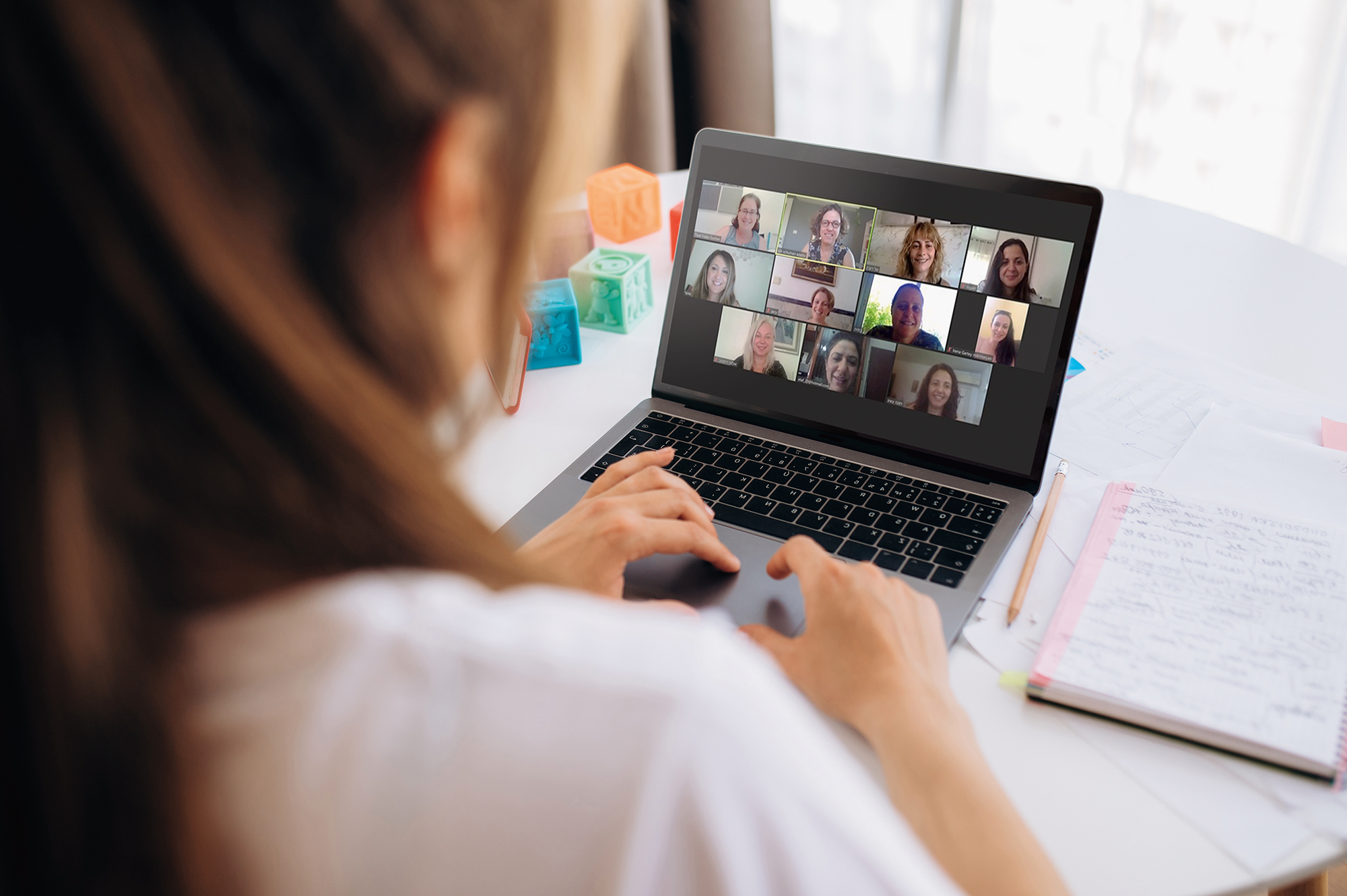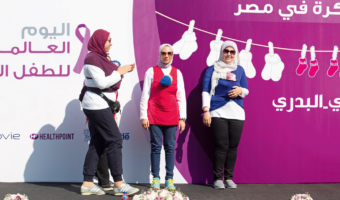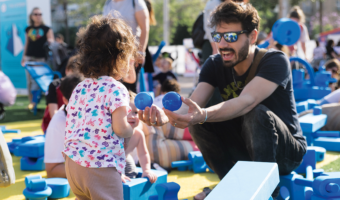The Covid-19 pandemic seemed to have caught the Israeli Nurse Leadership Program at the worst possible time. We were just finishing the first phase of a multi-year collaboration with the Ministry of Health to strengthen the capacity of the ‘Tipat Halav’ service (early childhood health centres) to meet parents’ needs and promote positive parenting behaviour. The programme aimed to establish a group of champions who could pioneer innovation and change in the service.
The second phase of the programme was due to be an ‘innovation lab’, in which we would work with the group of nurses using Design Thinking methods to develop innovative ways for Tipat Halav to promote positive parenting behaviours. As the pandemic forced the cancellation of face-to-face meetings, we were confronted with a dilemma. On the one hand, we felt that maintaining momentum and continuity was crucial. On the other hand, we felt that the innovation lab meetings needed to be done in person. It was difficult for us to imagine them working as well online.
We were also conscious that the participants, as public health nurses, would be in the eye of the Covid-19 storm and would find it difficult to get into the right frame of mind to focus on the programme. Tipat Halav centres remained open throughout the lockdown, while most community-based services were closed. Nurses were instructed to shorten face-to-face-appointments to the minimum of neonatal screening and immunisations, and to use other forms of communication and outreach as needed.
We decided instead to start a series of webinars for the nurses on topics related to the unique challenges of their work during the pandemic. How to engage effectively with parents when the visits are short and parents are stressed out and isolated? How to manage stress and uncertainty? How to practise selfcare? How to address managerial challenges? In these meetings we combined knowledge and skills with space for reflective practice and peer support. Participation was voluntary – either during work hours or in the evening – and both participation rates and engagement were high.
Zoom meetings for parents
Having experienced these online meetings, one of the nurses thought it could make sense to use a similar platform for the mothers’ groups she would usually run in the centre. She held a series of online meetings for young mothers, which received warm and positive feedback. Isolated from their families and community support systems, the participants were particularly in need of connection, guidance and support.
Within a few weeks, other nurses from the district joined the initiative, as well as nurses and managers from other areas. The expansion of the online parent groups was part of a wider movement of online webinars, meetings and therapy. The meetings usually had some structure and covered a wide range of topics such as parent–child bonding, breastfeeding, promoting children’s development through play, introducing solid foods, and even first-aid training.
As the nurses talked in our webinars about their experiences of conducting parent groups via Zoom, we sensed an opportunity to promote something potentially important for the service beyond the pandemic. We discussed the idea of scaling the local initiative, and got the blessing of the foundations that support the programme and our partners in the Ministry of Health. We invited any nurse from the programme to join the initiative, and over 20 did so. We offered them short training in how to lead an online group, and ongoing technical support, content development and supervision.
There have been some bumps in the road, and plans have changed several times, but we have been working with the nurses on content development and they are now conducting online parent groups routinely. If the results of this pilot continue to prove successful, it will strengthen the case for government investment in telehealth as a complementary service in Tipat Halav.
Lessons in managing change
Plans to digitise some services in Tipat Halav have been on the Ministry’s agenda for a long time, in response to requests from parents, but it had always proved difficult to overcome the political, bureaucratic and technological obstacles. Some of the centres do not have broadband internet, for example, so most of the nurses working via Zoom during the pandemic did so from their homes. The programme funded tablets for the nurses in the pilot as a short-term technological solution, while the Ministry of Health works in parallel to connect the centres and develop a longer-term solution based on an online platform used by other health organisations in Israel.
‘As the nurses talked in our webinars about their experiences of conducting parent groups via Zoom, we sensed an opportunity to promote something potentially important for the service beyond the pandemic.’
By forcing experimentation at the grassroots level, the Covid-19 crisis is unexpectedly accelerating change that had been planned for the long term. In doing so, it is teaching us how to manage change and innovation.
We saw differences between districts and areas in terms of available resources, flexibility and innovative spirit. We learned that it is easier and more effective to work locally with the most innovative and capable districts rather than to start by working nationally. The grassroots were ahead of the headquarters – but in order for local innovations to be successful on a wider scale, leadership needs to work centrally. People on the ground can pave the way for those higher in the hierarchy to join.
Looking more broadly, the first-phase success of the Israeli Nurse Leadership Program was also a significant factor in creating the conditions for change. Within a relatively short period, we had established a highly motivated, strong group. By learning together they had developed a common language, history and agenda. They were enthusiastic, dedicated and keen to keep connected even through the difficulties of isolation and lockdown restrictions. Just as importantly, the programme had also succeeded in earning the trust of the public health services and nursing administration, so they were happy for us to work independently. This is a good demonstration of how investing in building relationships can also build resilience for times of crisis.
Finally, we have learned not to underestimate what can be achieved. At the beginning of the Covid-19 period, we found it impossible to imagine the programme working in an online format – but not only is it working well, it sparked further innovation in developing new solutions to promote positive parenting behaviours.



